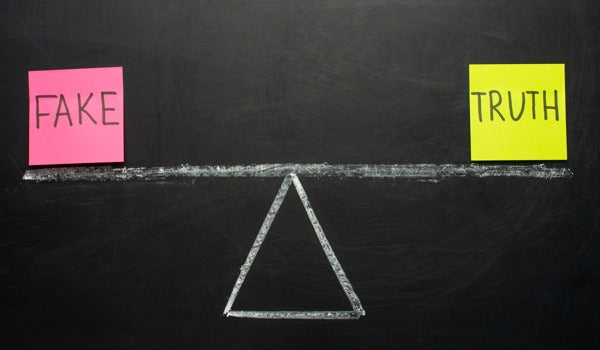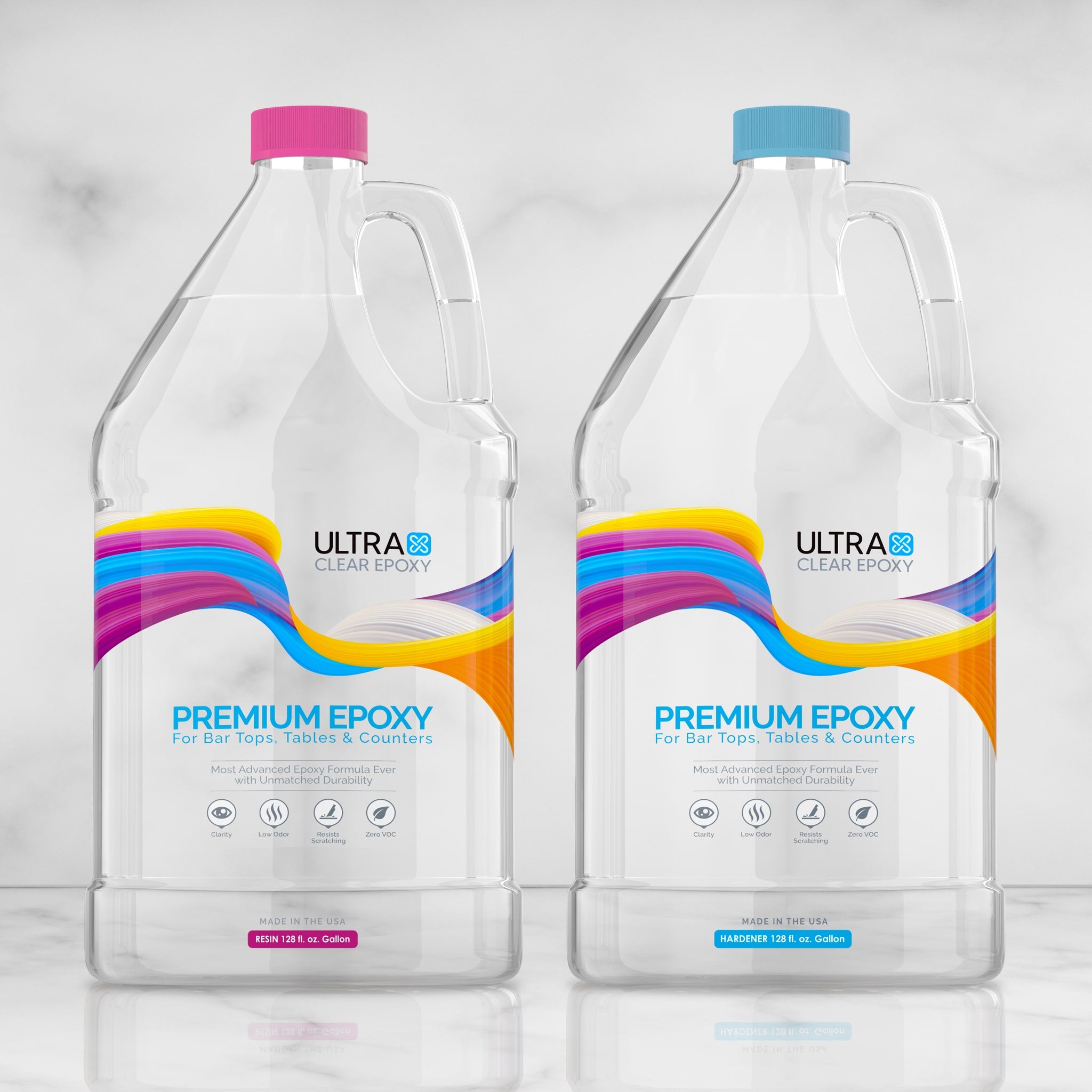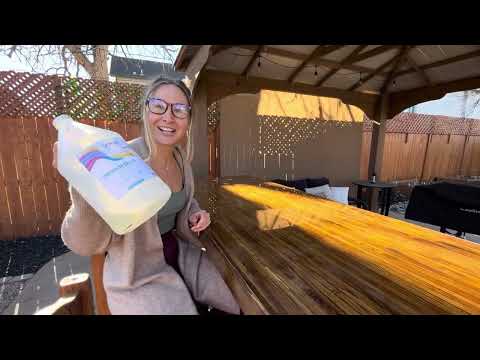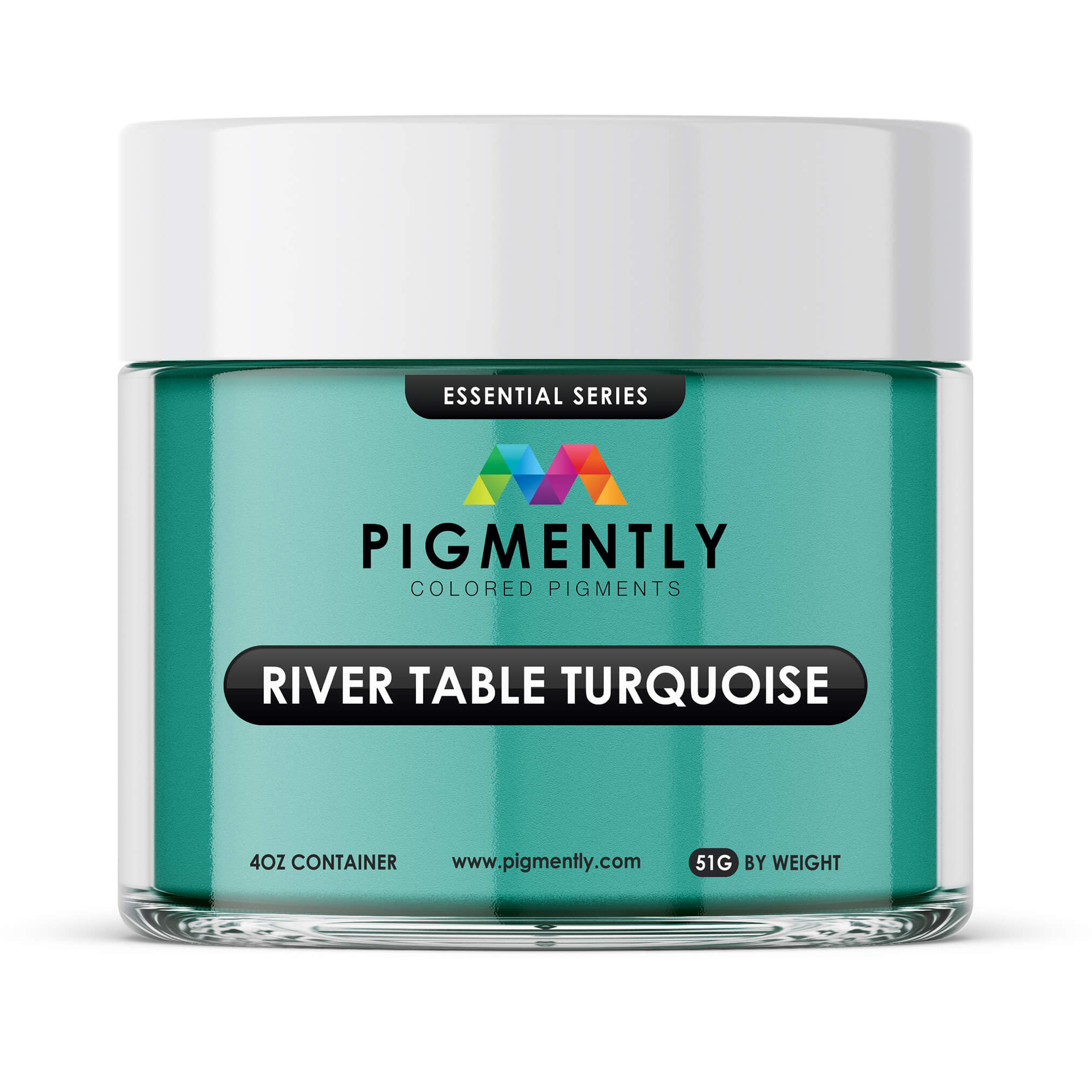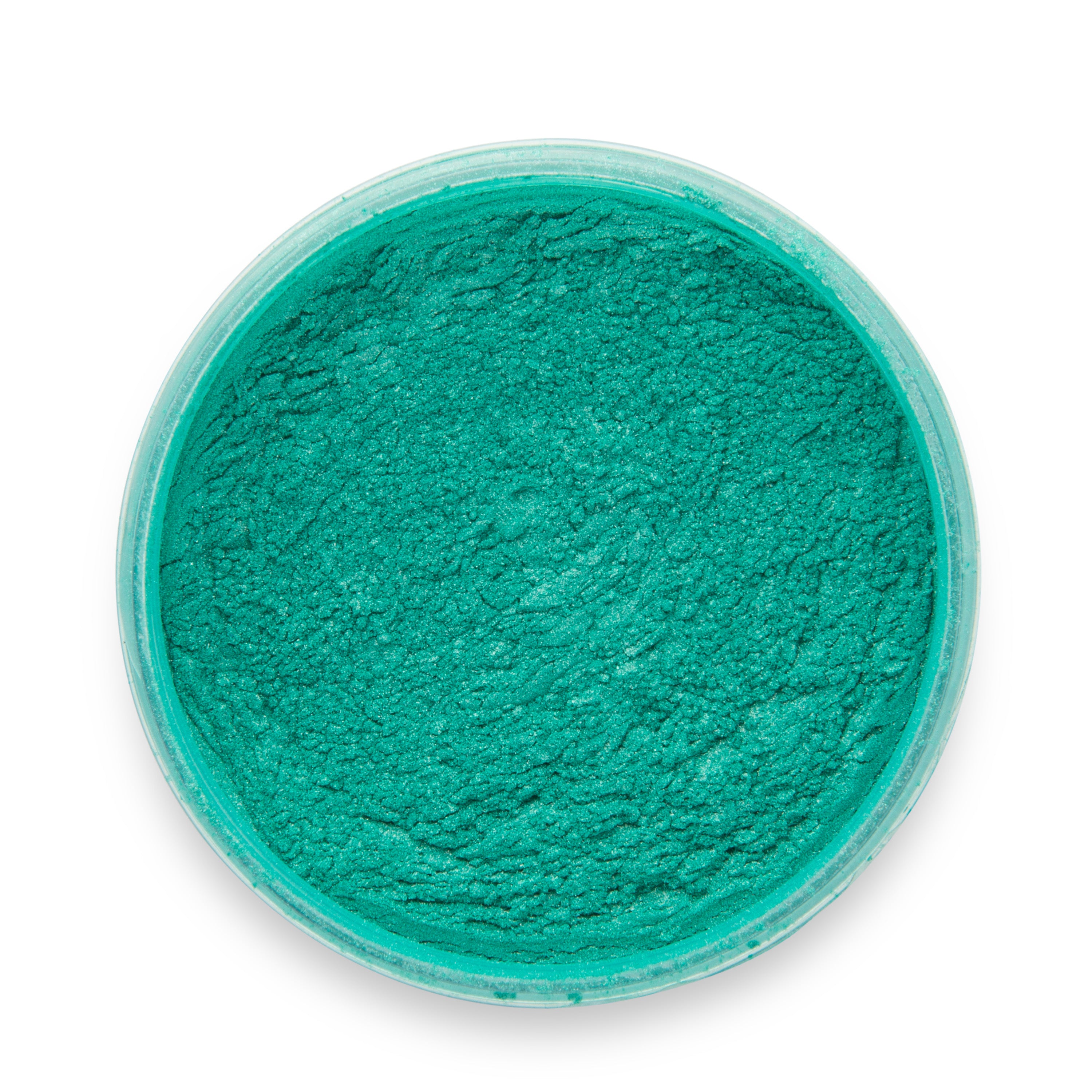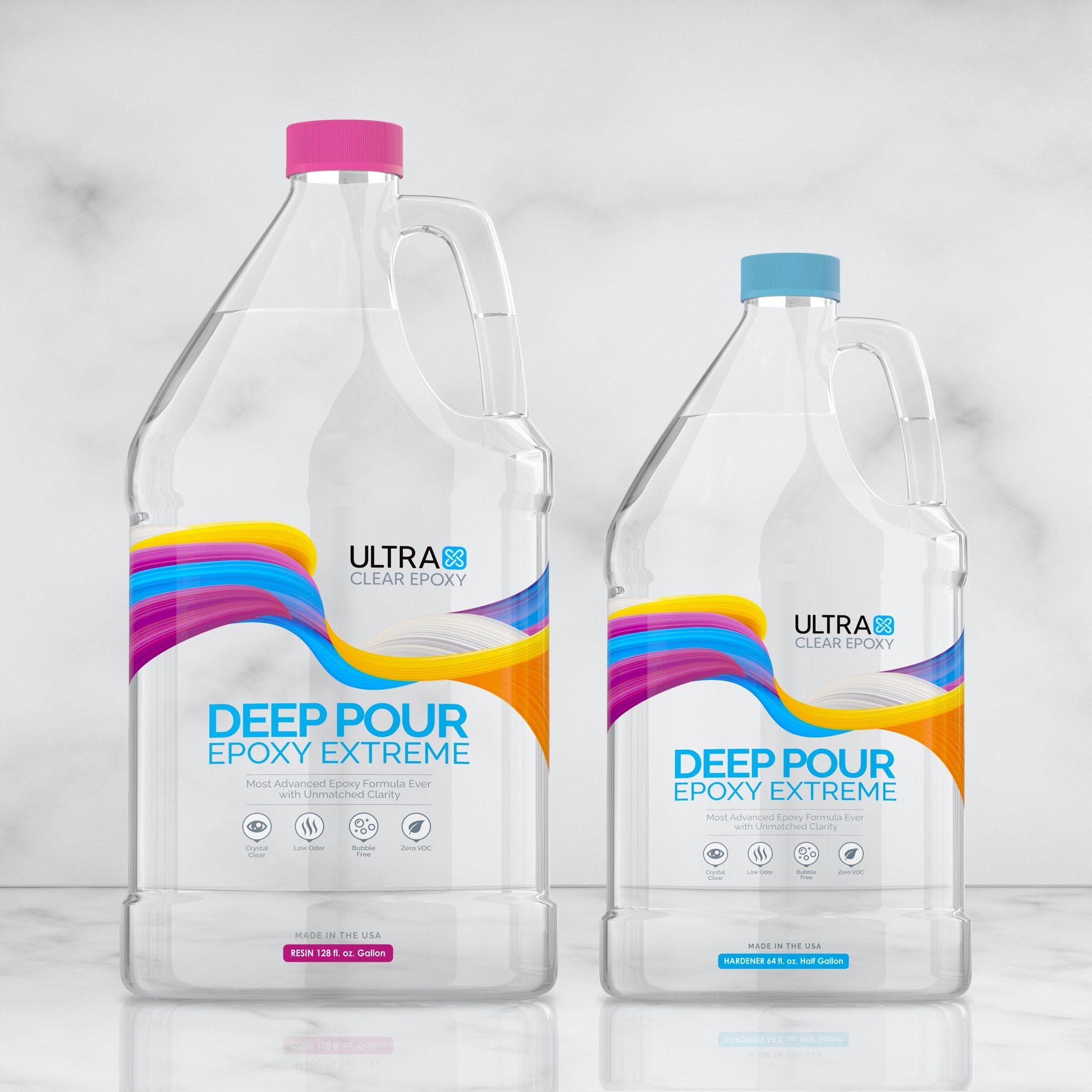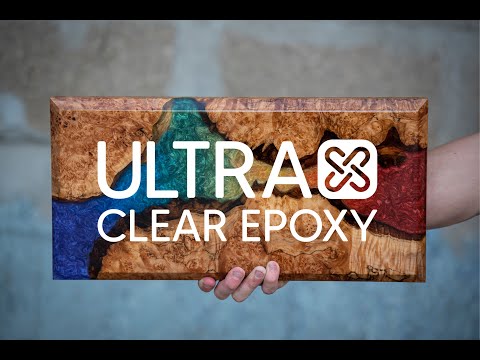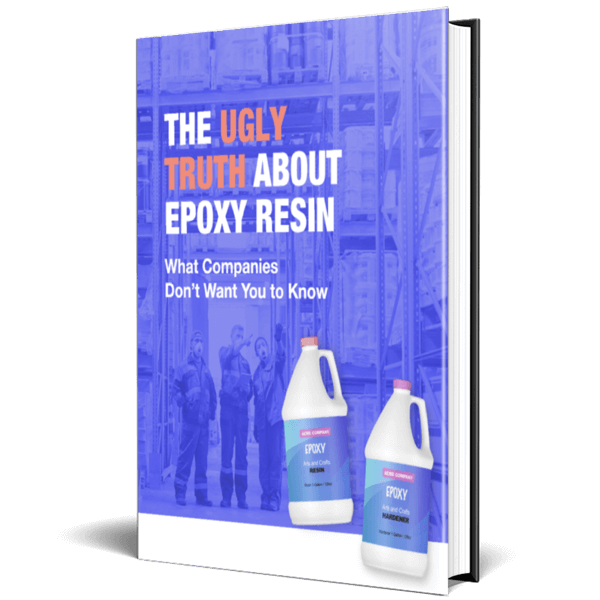A critical exposé of the epoxy industry.
Epoxy resin is a wondrous material. It can serve as a rock solid protective coating, be applied as a filler or sealant to repair things, or be employed as a component in composite materials—in fact, many airplanes and boats are constructed using epoxy.
In addition to that, epoxy is frequently used for its aesthetic qualities on furniture, for interior decor, and in arts and crafts projects.
However, these require the epoxy resin to be of good quality, meeting certain standards of purity and safety. Unfortunately, the truth is that many epoxy resins are being sold in substandard condition.
What's worse, the sellers who provide these poor quality resins are also making exaggerated claims about epoxy resin's capabilities.
Epoxy resin may be an excellent material, but it does have its limits, and the truth is being increasingly distorted by shady sellers hoping to make a quick sale and move on.
In this article, we'll explain some of the ways they do this. We'll also tell you how to avoid these types of sellers so you can choose the right resin for your epoxy projects.
The truth about epoxy resin safety and quality
There are several types of misinformation being spread about epoxy resin on internet marketplaces.
As disreputable sellers look to capitalize on the average person's lack of familiarity, they routinely make impossible claims about what their epoxy resin is capable of.
Our goal today is to counter these claims with the truth by explaining the different aspects of the epoxy industry you should be aware of, and providing accurate information about epoxy's strengths, weaknesses, and limitations.
First, here's a list of the topics we'll be discussing:
- How epoxy resin sourcing determines its safety standards
- How substandard quality affects epoxy strength
- How unvetted pop-up brands cost you more in the long-term
- The truth about epoxy's heat resistance
- The reality of resin "yellowing" and UV sunlight's affect on epoxy
- Some facts about "food safe" epoxy resin claims
We'll cover each of these issues one-by-one. Let's begin.

#1: How epoxy resin sourcing determines its safety standards
Epoxy sold to customers in the USA can be sourced from almost anywhere in the world. Each nation and city has its own series of regulations designed to protect consumers from unsafe practices and materials.
Unfortunately, not every nation's safety standards are as high as those of the USA. When epoxy is brought in from other countries, it doesn't have to meet U.S. regulations. Instead, the quality of these products goes unverified as it is distributed to warehouses until sold to a trusting customer.
Naturally, this can lead to issues where people who buy imported epoxy resin end up with health problems because corners were cut in ensuring the product's safety.
Fortunately, there is a way to protect yourself from this outcome. Buying epoxy resin manufactured in the USA means the resin you receive will have passed all of the safety tests required by U.S. law.
To achieve this, we make sure our own UltraClear Epoxy resins are all 100% made in the USA. Learn more on the product pages of our Table Top and Deep Pour epoxies.
#2: How substandard quality affects epoxy strength

One of epoxy resin's primary features is its resistance to scratching and impact. A good epoxy won't easily dent when something is accidentally dropped on it. This is especially important for interior decor uses such as epoxy table tops, countertops, and bar tops. It's also a major factor for epoxy flooring.
In reality, many epoxy resins sold by unfamiliar brands are simply not up to par when it comes to finish strength and resilience. Few of these resins are tested for hardness, and most can't honestly claim to hold up under pressure.
Epoxy resin's hardness can be certified using a durometer, a tool that can consistently apply force to a material until it yields. The industry standard for this testing is the Shore hardness scale.
To determine the impact resistance of polymers like epoxy, a type D durometer is typically used. This results in a rating of 1 to 100, with 100 being the absolute best.
For example, our UltraClear Table Top Epoxy scored a 98 out of 100—a nearly perfect rating.
#3: How unvetted pop-up brands cost you more in the long-term

In recent years, there's been an enormous influx of off-brand epoxy resin dealers, many of whom attempt to sell low-quality epoxy resins as a 3rd-party on marketplaces such as Amazon, eBay, and many other online stores.
These epoxy resins often offer a lower upfront cost than the premium brands, making them quite attractive to epoxy newcomers hoping to save money.
The problem is that using a low-quality epoxy is likely to cost you much more in the long run. Compromising with a cheaper epoxy usually results in projects with a weak, unstable finish due to resin impurities.
Low-quality epoxies break down more easily, require additional upkeep (which requires more time and money), and rarely last for their intended lifespan.
The wisest thing you can do is to avoid compromising on epoxy resin when planning your epoxy project.
Choose a high quality brand of epoxy from a reputable seller and gift yourself the peace of mind that comes with knowing you're getting exactly what you paid for.
Our UltraClear Epoxy resin is premium-grade, ensuring a long-lasting, rock solid finish.
#4: The truth about epoxy's heat resistance

Another oft misunderstood aspect of epoxy resin is its ability to resist heat.
While epoxy does have some heat resistance, many resin dealers vastly inflate the extent to which it can handle high temperatures.
With impossible claims as high as 500°F (!), it's no wonder that some people make the mistake of using bare epoxy surfaces to hold hot items like heated pots and pans or by resting objects near sources of high heat such as fireplaces and radiators.
Here's the truth: A good-quality epoxy resin can handle temperatures up to around 135°F. Prolonged exposure to 140°F can lead to softening of the epoxy, and at 150°F the epoxy will take heat damage.
These temperatures aren't low by any means, being notably above what it takes to burn a human, but they aren't astronomically high like the exaggerated assertions from some shady resin dealers.
The good news is that these heat resistance standards are met by all of our UltraClear Epoxy resins.
#5: The reality of resin "yellowing" and UV sunlight's effect on epoxy

Epoxy resin can be beautiful—even more so when infused with vibrant colors—but it can also lose that beauty if not cared for properly.
Epoxy is susceptible to resin "yellowing", a gradual visual change in which the epoxy begins to develop a light yellow tint. This effect can happen with almost any polymer, generally through long-term exposure to the UV radiation contained within sunlight.
For most indoor epoxy projects, this isn't a real concern as long as you use a good-quality epoxy resin. An indoor project will typically be well-shielded from direct sunlight. For outdoor projects, direct sunlight is a factor to consider.
Some sellers in the epoxy industry boast about epoxy resin that never yellows. However, this is simply not possible.
Here's the truth: Though there are ways to mitigate the rate at which epoxy will yellow upon exposure to certain elements, there is no known method of preventing it entirely.
If a seller claims that their epoxy will never yellow, they are probably lying about other aspects of their product as well. Because yellowing is a gradual effect, most epoxy users who buy these products will not realize this until well after they've made their purchase and even left a positive review.
If you intend to make an outdoor epoxy project, be mindful of where you place it, and try to reduce sun exposure to the finish as much as possible. You can use shaded areas near trees, walls, or a canopy to prevent direct contact with sunlight.
You can also construct your own shade shelter for your project. This works great for epoxy table tops and outdoor bar tops.
Once cured, our UltraClear Epoxy resins will never yellow indoors and are resilient to yellowing outdoors, though like all epoxy, it will happen eventually with long-term exposure.
#6: Some facts about "food safe" epoxy resin claims

Health and safety is always a concern when working with polymers. While many plastics are officially approved by the FDA as food safe, epoxy resin has yet to receive such a verification.
Although good-quality epoxies are food safe, the lack of regulation means that there are plenty of epoxy resins out there which aren't.
To protect your health and the health of those you care about, stick with credible epoxy brands that have a history of selling a safe, high-quality resin.
Once cured, all of our UltraClear Epoxy resins are food safe.
Our cured epoxies are completely free of VOCs (volatile organic compounds), allowing you to craft a variety of items that might come into contact with food, such as for holding snacks or drinks. Just don't stick them in the dishwasher.
Our Final Remarks
You may have found a lot of this information alarming, but we hope you also found it informative. Epoxy resin really is a terrific product for so many reasons.
Here's the good news: Once you find a quality brand you like, you can likely stick with it.
The most important part is doing some initial research to make sure you're making the right choice and don't fall for the misleading claims that many dishonest sellers have been making.
UltraClear Epoxy—Trusted by over 1 Million+ Happy Customers
If you're either new to epoxy resin or wanting to try a different brand because you haven't found one that works for you, we'd love for you to consider our premium UltraClear Epoxy resins.
You can find each of them on the following pages:
- UltraClear Table Top Epoxy - Our go-to epoxy for a transparent, tough as nails finish, suited for high-traffic environments such as bars and kitchens.
- UltraClear Deep Pour Epoxy - Our deep pour casting resin, perfect for river tables and casting molds.
- UltraClear Art and Craft Epoxy - A second casting resin, which features a higher viscosity than Deep Pour. It's designed for resin art, tumblers, and jewelry.
- UltraClear Marine Epoxy - Our three marine epoxy kits, designed for watercraft and related applications to be used in aquatic environments.
For a more in-depth analysis of everything we discussed, take a look at our ebook, The Ugly Truth About Epoxy Resin: What Companies Don’t Want You to Know, where we explain each issue in more detail and provide additional tips on how to navigate the world of epoxy vendors.
Have questions? Want advice? Contact us!
At UltraClear Epoxy, we make it our goal to provide customer satisfaction. If you have any questions about epoxy or related topics, or if you'd like advice on planning an epoxy project, please reach out to us. Our epoxy experts are glad to assist!
You can contact us via phone or email here. During business hours, you can also text chat online with one of our resin specialists by clicking the Help button at the bottom right of your screen.

